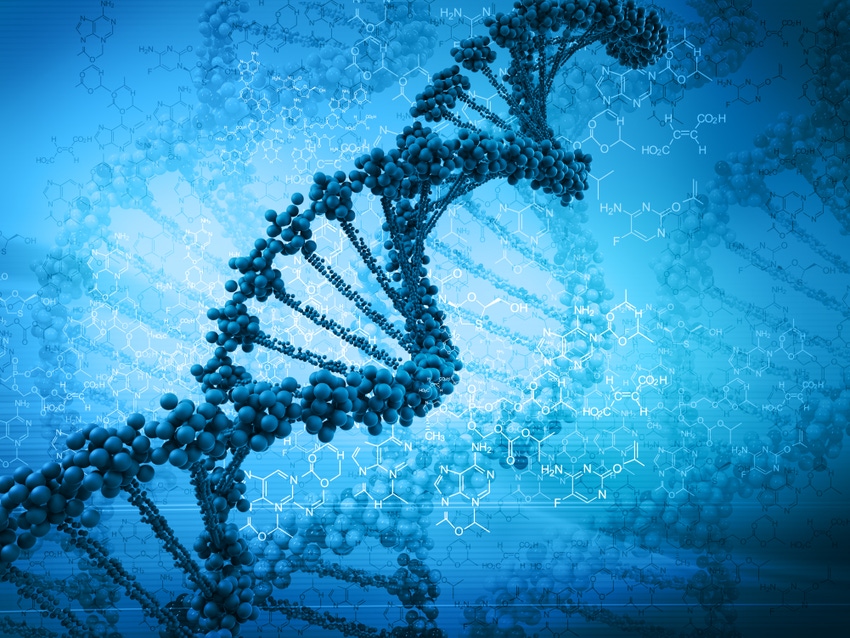Collaboration could spell "game over" for aflatoxin, the dangerous toxin found in peanuts, spices and corn.
October 16, 2017

Mars Inc. and collaborators launched an innovative food safety initiative to crowd-source solutions to solve the problem of aflatoxin, a dangerous foodborne toxin that can cause liver cancer and stunting.
On Oct. 16, a series of aflatoxin puzzles went online on Foldit, a platform that allows gamers to explore how amino acids are folded together to create proteins. The puzzles provide gamers with a starting enzyme that has the potential to degrade aflatoxin. Gamers from around the world then battle it out to redesign and improve the enzyme so that it can neutralize aflatoxin.
One in 10 people eat unsafe foods — like those containing aflatoxin — which can have severe health, economic and social consequences. Through innovation and collaboration, Mars' goal is to combat the causes of unsafe food and improve global food security as part of its Sustainable in a Generation plan.
The Foldit aflatoxin launch is built on an uncommon collaboration of diverse parties, including Thermo Fisher Scientific, the Partnership for Aflatoxin Control in Africa (PACA), the University of California-Davis, the University of Washington, Northeastern University and Mars Inc.
Foldit allows anyone in the world with a computer and an imagination to play. In fact, some of the best Foldit gamers have had no scientific training; the platform taps into humans' innate puzzle-solving abilities to solve complex scientific problems. The top aflatoxin designs will be synthesized using the latest synthetic biology techniques and materials donated by Thermo Fisher Scientific. The designs will then be tested in laboratories at the University of California-Davis for their real-world potential to eradicate aflatoxin.
All player designs will be available in the public domain, free of patents, in order to maximize the positive impact this project could have on global food safety.
The Foldit game was first released in May 2008, and since then, it has had a number of notable successes. For example, in 2011, a dozen gamers took only 10 days to unravel the structure of an enzyme involved in a virus similar to HIV — a problem that had troubled scientists for decades.
Speaking at the launch event in San Francisco, Cal., Dr. Howard-Yana Shapiro, chief agricultural officer at Mars, noted that "4.5 billion people in developing countries are chronically exposed to aflatoxin through their diet. This simply cannot continue. We're excited to bring together this partnership using the innovative Foldit computer gaming platform. I hope today kicks off the process to say 'game over' to this silent but serious threat to food security."
Justin Siegel, faculty director of the Innovation Institute for Food & Health and assistant professor of chemistry, biochemistry and molecular medicine at the University of California-Davis, said, "While aflatoxin has been a known issue for decades, advances in computation and biotechnology, coupled with the imagination of players from around the world, may finally result in a solution to this pressing problem. No single organization can tackle a problem this large, but the uncommon collaboration between the groups coming together here will enable us to not only discover a potential solution but translate it in a way that has real impact."
Helge Bastian, vice president and general manager of synthetic biology at Thermo Fisher Scientific, added, "We are excited to tread this innovative path bringing together two leading corporations from different industries, prestigious universities, a crowd-sourcing computer game and the public to help build a safer food supply chain and address a major health issue. Biology runs on a digital code -- DNA, the software of life -- that we can now design, write, modify and manufacture to engineer more effective, scalable solutions to real-world problems. This project has the potential to demonstrate the power of synthetic biology as a key discipline for a sustainable future."
Aflatoxin was first discovered in 1960 and is estimated to contaminate approximately a quarter of the food crops in the world. The substance has been linked to stunting in children who consume it and causes an estimated 90,000 cases of liver cancer each year. The toxin disproportionately affects people in poorer countries with less rigorous crop testing. Approximately 16 billion tons of corn are lost worldwide annually due to aflatoxin contamination. No current strategies to prevent aflatoxin infestation have been successful.
Anyone who would like to put their gaming skills to the test and join the initiative to eradicate aflatoxin can play the Foldit game at https://fold.it.
Mars is a family-owned business with more than a century of history of making diverse products and offering services for people and the pets people love. With almost $35 billion in sales, Mars is a global business that produces some of the world's best-loved brands and also provides veterinary health services that include BANFIELD Pet Hospitals. Headquartered in McLean, Va., Mars operates in more than 80 countries.
Thermo Fisher Scientific is a world leader in serving science. The company helps customers accelerate life science research, improve patient diagnostics, deliver medicines to market and increase laboratory productivity.
PACA is a collaboration that aims to protect crops, livestock and people from the effects of aflatoxins, thereby contributing to improving food security, health and trade across Africa. The African Union Commission provides leadership for PACA and works with a cross-stakeholder steering committee towards PACA's vision of an Africa free from the harmful effects of aflatoxins.
You May Also Like


.png?width=300&auto=webp&quality=80&disable=upscale)
